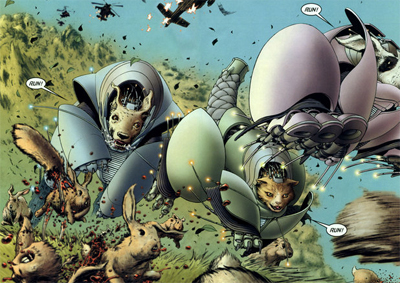The podcast that I co-host, The 250, will be looking at Batman and Robin this weekend. It is a fun discussion, well worth a listen, and I hope you enjoy. However, I had some thoughts that I wanted to get down before specifically about the film.
Batman and Robin is not a good movie, by any stretch of the imagination.
However, it is somewhat unfairly vilified. This is particularly true in comparison to its direct predecessor, Batman Forever. Very few people would attempt to argue that either Batman Forever or Batman and Robin were good films on their own terms, but the consensus seems to have formed around the idea that – to paraphrase Edward Nygma – Batman Forever was bad, Batman and Robin was worse. This calcified into the idea that Batman and Robin is among the very worst comic book movies ever, and Batman Forever is not.

It is interesting to speculate on why this might be. Batman Forever and Batman and Robin are both cynically constructed blockbusters aimed at the youngest and least discerning audiences, eschewing concepts like plot and characterisation in favour of cheap thrills and terrible jokes. Both films offer incredibly condescending exposition, betraying the sense in which they have been constructed for audiences with the shortest possible attention span. However, while Batman and Robin embraces this cynicism, Batman Forever clumsily tries to disguise it.
Much has been made of the fact that director Joel Schumacher wanted to make a better movie than Batman Forever. He singled out Batman: Year One as the Batman movie that he wanted to make. Traces of this better movie occasionally surface in discussions of Batman Forever and are often framed in reference to the film’s admittedly darker and more artistic deleted scenes. There is a clear sense that Batman Forever harboured something resembling ambition before it was brutally bent and broken into its final released form.

However, Batman Forever also offers its audience condescending and trite pop psychology. The result is a veneer of faux profundity that suggests hidden depths that the movie is unwilling and unable to explore. Batman Forever vaguely touches on the question of whether Bruce feels responsible for the death of his parents and the trouble he has reconciling the two halves of himself, but in no real depth. Two-Face is one of the primary antagonists of Batman Forever, and the film can’t even be bothered to make that thematic connection.
It’s interesting to wonder if Batman Forever has a slightly warmer reputation because of this unearned grasp at weightiness, these small gestures towards the idea of “psychological complexity” and “psychological nuance” in the most trite manner imaginable. After all, Batman Forever is a movie that has Bruce Wayne dating a psychologist, and feel inordinately proud of that idea. It’s easier to pass off Batman Forever as more mature or more considered than Batman and Robin, because it gestures broadly at ideas that are a little darker and more complex.

This is strange, because there’s a lot more interesting stuff happening in Batman and Robin. Unlike its direct predecessor, Batman and Robin makes no broad gesture towards profundity or insight. It is a profoundly stupid movie, and it is cognisant of both that stupidity and the audience’s relationship to that stupidity. However, there’s something much more interesting going on underneath the surface of Batman and Robin, in direct response to Batman Forever.
Batman Forever feels like a moral panic picture, a direct response to some imagined public outrage about certain earlier interpretations of the Caped Crusader. As such, it aims to produce the most generic and vanilla iteration of the character, the most boring and the most normative. What makes Batman and Robin so interesting is that it represents a firm rejection of that conservativism, and actively works to inject a lot of the queerness back into the Batman mythos. It doesn’t do this especially elegantly or smoothly, but it does it nonetheless. The results are compelling and engaging.

Continue reading →
Filed under: On Second Thought | Tagged: backlash, batman, Batman and Robin, batman forever, comic book, conservatism, controversy, culture war, gay, george clooney, homophobia, jim carrey, joel schumacher, nicole kidman, Poison Ivy, queer, seduction of the innocent, sexuality, the riddler, uma thurman, val kilmer, Warner Brothers | Leave a comment »




























